Lea Wait's Blog, page 31
September 6, 2024
The RMC, an ever rarer species
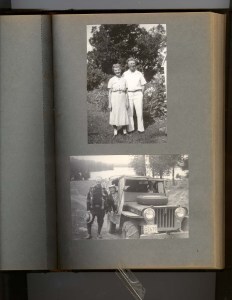
My paternal grandparents
John Clark remembering an endangered species. They can’t be manufactured, nor imported, and definitely cannot be bred in captivity. When I was a kid back in the 1950s, they were abundant and I doubt anyone even entertained the thought that they might someday be as rare as an honest republican. In fact, many back in the day were in that party and I suspect they’d roll over in their grave (or bed at the nursing home) if they could see what passes for such these days, but I digress..
I’m talking about that phenomenon we here in Maine, know as the Real Maine Character. I don’t make the cut, having only been here since 1949, but I can spot them wicked easy. Most are reticent to the point where unwary flatlanders think them a bit on the slow side, but that’s a huge error, one that often comes back to bite said outtastater in the ass. Most have a sense of humor so dry it would stop basement mold in its tracks. They tend to look askance at anything that hasn’t been around for half their lifetimes (think debit cards, cell phones, electric cars, etc.) They favor pick-up trucks and like my RMC friend Vaughn from Skowhegan and love to dicker, even when the other fella is also an RMC.
They’re pretty solid in dietary habits, too. Bean suppahs are a good place to spot both genders of RMCs. In fact, I’d venture that damn near every pie served at such an event was made by an RMC lady. They populate Maine fairs in droves. Look for them around the horse and tractor pulls, making spare bets at the ever-decreasing harness races and the female RMCs aren’t above one-upping each other when it comes to competing in the canned, pickled, and hand sewn categories in the exhibition halls.
They know where the best trout holes are and scorn folks who hunt with fancy high-powered rifles, preferring ones like a lever action 30-30. They also have been known to hunt near one of the famed Maine Pine Apple Trees. They’re also easy to spot at town meetings, just listen when the school budget articles come up.
My grandfather, Dr. Arthur H. Clark was one, as was my favorite relative, my great uncle Leland Look from New Vineyard. Doc was perhaps the last circuit-riding and barter dentist in the state. He traveled between offices in Bingham, Kingfield, Rangeley, and his house in West New Portland. During the depression, he often traded dental work for firewood, venison, or furs. Uncle Leland was postmaster in New Vineyard for many years, ran a trap line into his 80s, cut and split his own firewood and raised the best dinner plate dahlias I’ve ever seen. He was a man of few words, but I still remember him fondly and often. Another great Uncle, we called Cleba (his full name was Grover Cleveland Harville), lived with Aunt Lottie in Skowhegan. They had a cistern built into a small pantry off the kitchen that never stopped fascinating us when my sisters and I visited. He made his living as a chauffeur for rich people, but his side hustle was more unique-he was the unofficial fiddler for Somerset County.
They weren’t the only RMCs I’ve known. They were abundant when I was growing up in Union. Among the ones I remember most vividly are Arlo Wadsworth who was around my age and famous for offering ‘real cash money’ whenever he wanted to buy something. Bill Keene was a truck driver of few words who wore the thickest glasses I’ve ever seen. Henry Hills, who lived next door, distinguished himself by saving two kids when his gas torch set off an explosion underneath the trailer they lived in while repairing pipes. Even with half his face blistered, Henry remained cool and got the kids and their mother out before things got ugly. If I remember correctly, Henry, a bachelor in his forties, married the woman not long after.
Two more come to mind. One was Raymond Feyler who everyone called Jumbo. His claim to fame was going to the movies in Rockland every Friday and buying a big container of popcorn that lasted all through the movie. The last was our up the road in Appleton neighbor, Hilda Stockbridge. She was a hard worker, raising three sons by herself. She loved to talk, but had a partial paralysis of her vocal cords that made doing so a challenge. One summer afternoon, Hilda had the windows in her living room open while vacuuming during a thunder storm. (We used to have some doozies that followed the Georges River down from Liberty back in those days). The story goes that a bolt of lightning came down, ricocheted off a boulder, came in one window, flew past her and out the other side. Poor Hilda was so shocked, she couldn’t utter a word for at least a week.

Uncle Leland with his sister Della who was my grandmother. The kid in the photo is the famous Kate Flora.
I’ve met a lot more RMCs, particularly in my roles as a mental health professional and public librarian, so many, in fact, that I have no problem taking bits of several to create a new character when writing stories set here in Maine. What are your memories of RMCs?
September 4, 2024
Fall’s Observable and Unobservable Mysteries
Fall is slipping in the door before summer has quite departed, wearing sensible shoes and socks as it ushers out its sandaled predecessor.
Autumn is the most emotional seasonal transition for me, more than the start of a new year, and even more than the miraculous arrival of spring.
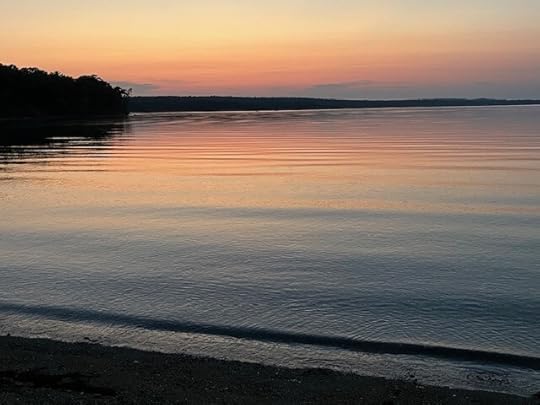
The sun is setting on summer.
Labor Day weekend, in particular, is freighted with melancholy. I still can conjure my childhood dismay when unstructured days playing outside from sunup to sundown were abruptly replaced by Catholic school uniforms and weekdays bound by rules. I’d yearn then as I do now for just one more day of freedom, one more post-8 p.m. sunset, one more bike ride to the swimming hole, one more drive in movie, one more luscious bite of watermelon.
These days I know enough to savor the last wild blueberries of the season and our final ocean swim, tell myself fall is a great time to get organized and focused after the long days of summer and the illusion of endless time to accomplish whatever needs to be done. In September and October it will be easier to keep my head in my work, I tell myself. I won’t be tempted to laze around when I should be writing, to play when I should be working.

Take joy in the Zinnias while they last.
(I’m not sure if those personal pep talks work.)
I’m also more conscious now of autumn’s philosophical meaning—the season of endings. The garden stops producing, the leaves turn color and abandon their trees, and the zinnias are taken by the frost.

Sooner than we can imagine on this bright Labor Day, this will happen.
Amidst the many changes surrounding us, it’s not a big jump to both retroactively and preemptively grieve the bigger losses in our lives, of time and of people.
Mary Oliver, who illuminates nature and its meanings in her work as well as any poet I’ve ever read, reeled me in today with her her poem FALL SONG:
Another year gone, leaving everywhere
its rich spiced residues: vines, leaves,
the uneaten fruits crumbling damply
in the shadows, unmattering back
from the particular island
of this summer, this NOW, that now is nowhere
except underfoot, moldering
in that black subterranean castle
of unobservable mysteries – roots and sealed seeds
and the wanderings of water. This
I try to remember when time’s measure
painfully chafes, for instance when autumn
flares out at the last, boisterous and like us longing
to stay – how everything lives, shifting
from one bright vision to another, forever
in these momentary pastures.
I wish you all a good seasonal transition, my friends. Embrace the unobservable mysteries, and don’t bypass the opportunity for that last swim.
Brenda Buchanan brings years of experience as a journalist and a lawyer to her crime fiction. She has published three books featuring Joe Gale, a newspaper reporter who covers the crime and courts beat. She’s now hard at work on new projects. FMI, go to http://brendabuchananwrites.com
September 3, 2024
When the nip is in the air, what words do we have for fall?
Kate Flora: When my boys were little, we used to have word lists posted on the  refrigerator both to improve their vocabularies, and to encourage creativity and kindness in their name-calling. Lists that began: Don’t call your brother an idiot, instead try…followed by all sorts of possibilities. It’s not my fault. My family has always had a fascination with word play. My brother John is the world’s best (or worst) punster, and I own a zillion books about word origins and the development of language. Growing up there was always a dictionary within reach of the dinner table and my boys grew up the same way. I even have (of course) the giant two volume Oxford English Dictionary—the one with the little drawer and a magnifying glass—and I use it. It’s more fun to know both the definition and the origin of a word.
refrigerator both to improve their vocabularies, and to encourage creativity and kindness in their name-calling. Lists that began: Don’t call your brother an idiot, instead try…followed by all sorts of possibilities. It’s not my fault. My family has always had a fascination with word play. My brother John is the world’s best (or worst) punster, and I own a zillion books about word origins and the development of language. Growing up there was always a dictionary within reach of the dinner table and my boys grew up the same way. I even have (of course) the giant two volume Oxford English Dictionary—the one with the little drawer and a magnifying glass—and I use it. It’s more fun to know both the definition and the origin of a word.
Once, early in the Thea Kozak series, I had a list on the wall of a dozen words for pain—she was always mixing it up with the bad guys—and another time it was pages of words for colors. Plenty of words for the seasons. The weather. What can I say? I’m a writer. I like words.
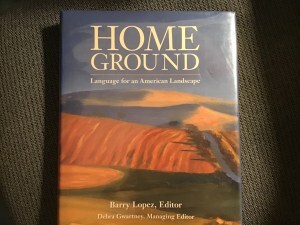 One wonderful recent gift from my son was a book to help with describing the landscape called Home Ground. Another that gets pulled off the shelf is Word Painting: A Guide to Writing More Descriptively. And a third is an old college textbook, much underlined, called Fine Frenzy: Enduring Themes in Poetry.
One wonderful recent gift from my son was a book to help with describing the landscape called Home Ground. Another that gets pulled off the shelf is Word Painting: A Guide to Writing More Descriptively. And a third is an old college textbook, much underlined, called Fine Frenzy: Enduring Themes in Poetry.
This week, the sudden, and unwanted, nip in the air sent me scurrying to my trusty Rodale’s Synonym Finder for words to describe what is happening, thinking it would be fun to share some of them with you, and Rodale’s was a bust.
I looked up autumn and got fall and harvest. I looked up equinox and it wasn’t there at all.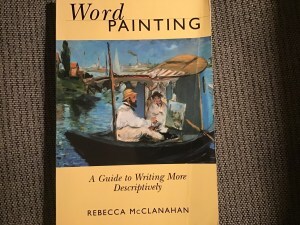 Undaunted, I grabbed my Bartlett’s, source of a hundred epigrams, and sighed with relief. Words, crunchy, powerful, evocative words. There are those who see autumn as sadness and an end, and those for whom it is a time of ripening and crescendo. I often turn to poetry when I’m searching for a description or a word or a phrase to underscore a mood.
Undaunted, I grabbed my Bartlett’s, source of a hundred epigrams, and sighed with relief. Words, crunchy, powerful, evocative words. There are those who see autumn as sadness and an end, and those for whom it is a time of ripening and crescendo. I often turn to poetry when I’m searching for a description or a word or a phrase to underscore a mood.
Arthur Symons give us:
The gray-green stretch of sandy grass,
Indefinitely desolate;
A sea of lead, a sky of slate;
Already autumn in the air, alas!
And Matthew Arnold:
Coldly, sadly descends
The autumn evening. The field,
Strewn with its dank yellow drifts
Of withered leaves, and the elms,
Fad into dimness apace
And Tennyson captures what my small boys would have described as “happy sad,”
Tears, idle tears, I know not what they mean,
Tears from the depths of some divine despair
Rise in the heart, and gather to the eyes,
In looking on the happy autumn fields,
And thinking of the days that are no more
 As does Shelley:
As does Shelley:
Make me thy lyre, even as the forest is:
What if my leaves are falling lit its own!
The tumult of thy mighty harmonies
Will take from both a deep, autumnal tone,
Sweet, though in sadness.
John Dryden gives us a good phrase for aging long:
Of no distemper, of no blast he died.
But fell like autumn fruit that mellowed
long—
For some of us, autumn is a season for slowing down, and contemplation, as in this, from Thomas Hood:
I saw old Autumn in the misty morn
Stand shadowless like silence, listening to silence
And Laura St. Martin, in “As I Look Out” captures the transition from summer into fall:
As I look out from the desk window
Fingering the new books
I see a quiet afternoon
Caught in a crack between summer and fall
Summer is evaporating on the lawns
And I watch in deep brown anticipation
As the fog which held that last warm night
Takes away the flowered dresses
Suntanned legs and swimming pools
Thin clouds and sunlight argued over the morning
Mornings that still whisper bandanas and beaches
But Fall will have it all soon
When her sharp breath blows away any lingering
And sends us scurrying back to schoolhouses all bundled up
Scurrying back to realities and glories on the wane
These writers remind us to slow down and contemplate the world around us. There is no better time for that than in fall, as the leaves turn, the fields grow golden, pumpkins ripen, and the last tomatoes struggle to turn red.
Do you have “fall” word that you like? A poem, a quote, and phrase that comes to mind as the days shorten and the air grows cool?
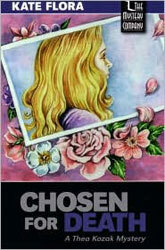 For those reading this or other posts this week, one of you who leaves a comment will win a copy of my first Thea Kozak mystery, Chosen for Death.
For those reading this or other posts this week, one of you who leaves a comment will win a copy of my first Thea Kozak mystery, Chosen for Death.
September 1, 2024
Memories of Summers Past
Kaitlyn Dunnett/Kathy Lynn Emerson here, spending this Labor Day 2024 thinking about Labor Days past and the summers that preceded them. I grew up in an area noted for summer tourism—the Sullivan County Borscht Belt in southeastern New York State. Labor Day marked the end of “the season” and although that meant tourist dollars were gone until the next year, it was also cause for locals to celebrate. Summers were crowded! Tourists could be demanding—the term “summer complaints” didn’t just sprint out of nowhere! For local kids to have a swimming hole to ourselves, for example, it had to be marked with a sign that said “Residents Only.” This was Revonah, and I took lessons at there like everyone else I knew.

For several generations, both sides of my family profited from the summer exodus of people from “the city” to “the mountains.” My paternal grandfather made souvenirs to sell to summer people. My mother’s family turned their farm into a summer boardinghouse. It was still in business in the 1950s and I can remember falling asleep in the downstairs bedroom with the window open to the porch and listening to boarders (actually roomers by then, since individual kitchens had been installed to allow for keeping kosher) exchange gossip in Yiddish.
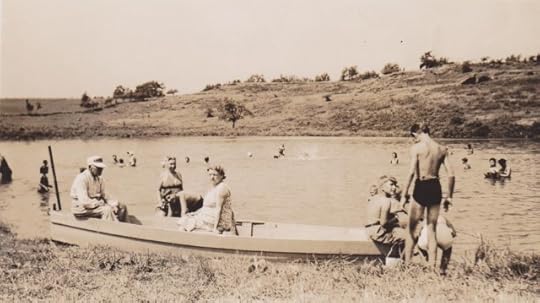
farm pond used for boating and swimming at the farm/boardinghouse
There was also an apartment over the garage that was rented out every year to a Mr. and Mrs. Hershey. In my own house, until 1958, my parents let the spare room (the one with its own balcony that I later claimed for my own) to a Mr. Lazar every summer. During the school year, it was sometimes rented to a teacher who also had the dubious honor of babysitting for me. We were far from the only family in the area who rented out a room, or converted their upstairs into an apartment.
Summers as a kid in the 1950s and early 1960s meant being outdoors most of the time, hanging out with friends, taking long bike rides, and inventing our own games. No one rode herd on us. No one worried about where, exactly, we were. Trips to the “custard stand” for soft-serve ice cream were a regular evening habit. So was walking downtown to window shop or go to the movies. I went to a lot of movies, since two theaters were open in the summer and it was nice and cool inside. Sometimes I went by myself and other times with a whole gang of other girls my age. I can remember staying to sit through Disney’s Sleeping Beauty two or three times in a row, even though the accompanying “short subject” featured snakes and I had to close my eyes for that part.
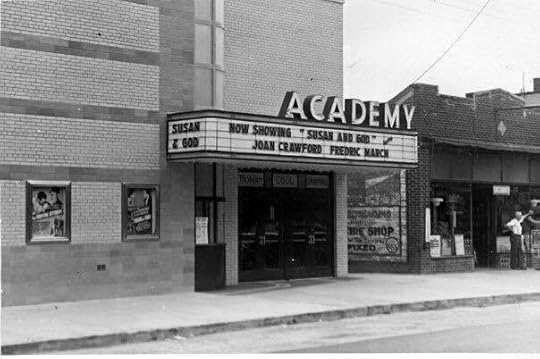
the second move theater, open only in the summer
Although, at sixteen, many of my classmates got jobs at local hotels or in businesses that catered to tourists, I was only marginally involved. My first job, if you don’t count selling personalized Christmas cards on commission (Mom did this first, then sent me out with the huge sample books from three different card companies), was as a long-distance operator using an old-fashioned “cord board” at the telephone company. There were lots of long-distance calls, but I wasn’t in direct contact with the folks who made them.
To be honest, I spent a whole lot of time during my teenage summers reading on our front porch or, after I claimed the “guest room,” on my little balcony. What can I say? I was always something of a nerd.
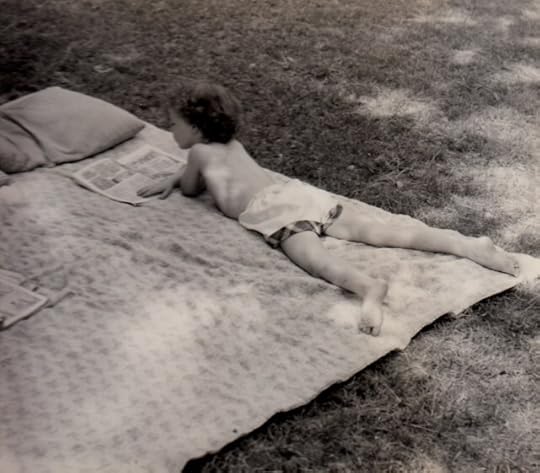
Kathy Lynn Emerson/Kaitlyn Dunnett has had sixty-four books traditionally published and has self published others. She won the Agatha Award and was an Anthony and Macavity finalist for best mystery nonfiction of 2008 for How to Write Killer Historical Mysteries and was an Agatha Award finalist in 2015 in the best mystery short story category. In 2023 she won the Lea Wait Award for “excellence and achievement” from the Maine Writers and Publishers Alliance. She was the Malice Domestic Guest of Honor in 2014. She is currently working on creating new omnibus e-book editions of her backlist titles. Her website is www.KathyLynnEmerson.com.
August 30, 2024
Weekend Update: August 31-September 1, 2024
 Next week at Maine Crime Writers there will be posts by Kaitlyn Dunnett/Kathy Lynn Emerson (Monday), Kate Flora (Tuesday), Brenda Buchanan (Thursday), and John Clark (Friday).
Next week at Maine Crime Writers there will be posts by Kaitlyn Dunnett/Kathy Lynn Emerson (Monday), Kate Flora (Tuesday), Brenda Buchanan (Thursday), and John Clark (Friday).
In the news department, here’s what’s happening with some of us who blog regularly at Maine Crime Writers:
An invitation to readers of this blog: Do you have news relating to Maine, Crime, or Writing? We’d love to hear from you. Just comment below to share.
And a reminder: If your library, school, or organization is looking for a speaker, we are often available to talk about the writing process, research, where we get our ideas, and other mysteries of the business, along with the very popular “Making a Mystery” with audience participation, and “Casting Call: How We Staff Our Mysteries.” We also do programs on Zoom. Contact Kate Flora
August 29, 2024
Know Your Reader, Your Passion & Your Genre
Charlene D’Avanzo: Last weekend Maine Authors Publishing, my publisher, hosted their annual “Meet and Greet” event – an opportunity to talk to people who read – or might be interested in reading – my books.
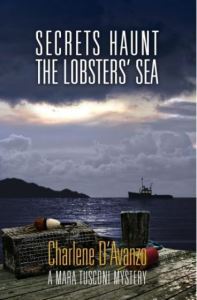 Of course, meeting folks who read your books is very different from writing books. Many of us come up with features like characters, setting, and issues alone in our office in front of a computer. Given that isolation how do we write something people will actually want to read?
Of course, meeting folks who read your books is very different from writing books. Many of us come up with features like characters, setting, and issues alone in our office in front of a computer. Given that isolation how do we write something people will actually want to read?
A few ideas: First, get insights from well-written books you like and admire. For example, early on I read and reread Jacqueline Winspear’s Maisie Dobbs novels. The multi-prize winning author (e.g. Agatha Alex, and Macavity awards) writes about issues that matter (e.g. the British Isles during the German blitzkrieg) with characters we admire and will remember.
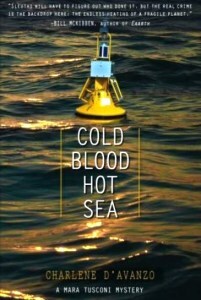 Your own “issues that matter” may seem insignificant compared to global wars. What’s important is that they really matter to you. I am a marine ecologist so it’s no surprise that my stories take place in marine settings where ecological issues are at stake – such as rough-and-tumble nature of Maine’s signature fishery (Secrets Haunt The Lobsters’ Sea) and climate change deniers (Cold Blood Hot Sea).
Your own “issues that matter” may seem insignificant compared to global wars. What’s important is that they really matter to you. I am a marine ecologist so it’s no surprise that my stories take place in marine settings where ecological issues are at stake – such as rough-and-tumble nature of Maine’s signature fishery (Secrets Haunt The Lobsters’ Sea) and climate change deniers (Cold Blood Hot Sea).
Finally, what are features of characters we admire and remember? You need to create folks that are charismatic, relatable, and flawed so readers are more likely to remember your book. Readers may not like your characters but they do need to find them interesting.
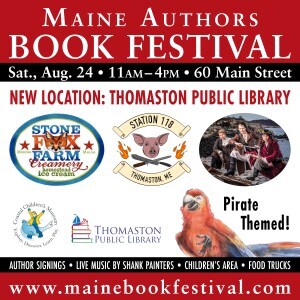

August 27, 2024
Breathing Heart and Soul into the People of the Pages by Matt Cost
How does one go about creating characters? I would be most interested to hear how other writers go about the process as well as thoughts from readers on what they like and don’t like about character development.
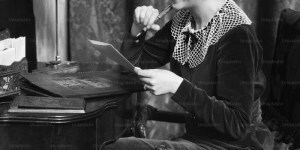
I first get an image in my mind of who this person is going to be, and this is often modeled upon traits that I possess, those that I admire or detest in others, and conflicting flaws that I find fascinating. Sometimes I scroll the internet to find a picture of somebody who fits the blurry image coming into focus in my mind and put it into my notes, character sketch, and outline document.
Underneath this image I start building the description. Tall, short, slim, thick, eye and hair color, and so on. I also like to give characters a descriptive defining trait like the nose of a falcon’s beak or some such thing. But a description is much more encompassing than physical traits. Who are they and how did they become that? Humor, foibles, wit, trigger points, compassion, attention to detail—well, you get the picture. A real, live, breathing human being.
The Protagonist: I have five different protagonists in my books, three out there in the world, and two not yet born.
Goff Langdon is the star of my Mainely Mystery series. He is a PI as well as the owner of a mystery bookstore. Langdon’s father left at an early age, making him the man of the house before he was even a teenager, and a father to his younger twin brothers. This experience shapes who he is and how he interacts with the world.
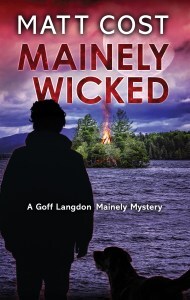
Clay Wolfe is a PI and a lead in my Port Essex Trap series. He returns to his small coastal hometown in Maine after becoming jaded on the job as a Boston homicide detective. He is a snazzy dresser, perhaps to cover up his insecurities, and has a difficult time committing to a love interest due to his own tragic beginning being orphaned at age eight.
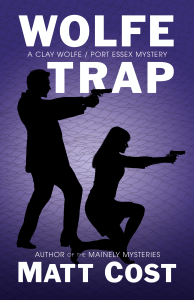
Brooklyn born Hungarian 8 Ballo is a naturally large and strong man who has trouble finding clothes that fit. He is ‘woke’ long before his time (1920s), is a product of WWI, and consorts with gangsters as easily as celebrities, even though he is an honest and average person.
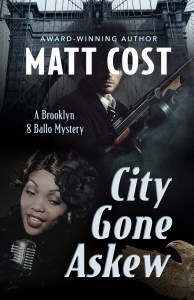
Max Creed will grace the pages of my new series debuting in April of 2025. His life takes a horrific twist when his bride is killed on their wedding day by an assassin hired to take her life by a billionaire who Max tried and failed to bring to justice for his crimes. After a downward spiral, Max re-emerges as a modern-day Robin Hood looking to bring justice to those wronged by the ultra-wealthy.
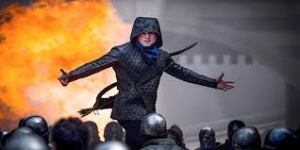
Jazz Jones is my latest creation. He is a white PI in 1950s Raleigh who was raised by his aunt and her Black husband. This shapes his life as he has one foot in each of two worlds in that turbulent time, and at the same time, belongs in neither. It will be interesting to continue to breathe life and bring to life this man who has his own emotional baggage, some of it foisted upon him, and some of his own doing.
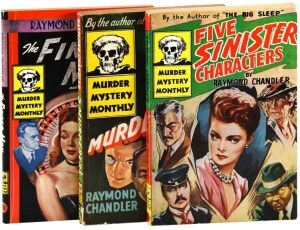
The Antagonist: The five PI mystery and thriller series that I have created all need an antagonist, none of whom make the jump from one book to the next. That means that I have now fabricated sixteen villains. Men and women who are just plain bad and evil, but sometimes complicated and with redeeming qualities. They are the most fun to manufacture. A man with rancid breath like the smell of burning tires. That sort of thing never gets old.
The Regulars: I like to cloak my protagonist in the warm embrace of a supporting ensemble of friends who throw their efforts into helping, bailing out, saving, and doing whatever necessary to help our hero win the day. They, along with the protagonist, continue to evolve and grow from book to book as the traits not visibly seen continue to be added to complete them as living, breathing, human beings.
The Nameless: And then there are those who have not risen high enough in the ranks to get a name. Sometimes they get nicknames based on their physical features. The Mountain. Mouse. Scarface. Crooked teeth. And sometimes, these same people grow and gain a name. The deli owner Tony. The newspaper journalist Marie. Real people who refuse to leave the pages like Dorothy Parker.
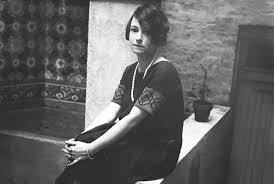
Creating life is one of the best perks of being a writer. I’d love to hear input from writers and readers on what they think works and doesn’t work in breathing heart and soul into the people of the pages.
About the Author
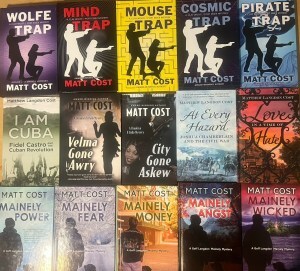
Matt Cost was a history major at Trinity College. He owned a mystery bookstore, a video store, and a gym, before serving a ten-year sentence as a junior high school teacher. In 2014 he was released and began writing. And that’s what he does. He writes histories and mysteries.
Cost has published five books in the Mainely Mystery series, with the sixth, Mainely Mayhem, being released in November of 2024. He has also published five books in the Clay Wolfe Trap series.
For historical novels, Cost has published At Every Hazard and its sequel, Love in a Time of Hate, as well as I am Cuba. In April of 2023, Cost combined his love of histories and mysteries into a historical PI mystery set in 1923 Brooklyn, Velma Gone Awry. City Gone Askew came out in July of 2024.
August 26, 2024
So Where Do We Get Our Ideas?
From time to time, in keeping with our motto “all things writing,” we do a group post on some writing-related topic. This month, the topic is “Where Do We Get Our Ideas” and the answers may prove fascinating.
 Kate Flora: Story ideas are everywhere. In the papers, on the news, in snippets of overheard conversation. I often refer readers who ask me this question to the origin story of my first published mystery, book one in my Thea Kozak series, Chosen for Death. The story was inspired by an Ann Landers column. Someone had written to her, saying that when she was young, she’d become pregnant and the boy didn’t want to marry her. This was in a time when unwed pregnancy carried a huge stigma. Her family sent her to a home for unwed mothers, and she gave the baby up for adoption. At the time, she was told that this was her secret, and she should go on to make a life as though this had never happened. She subsequently married to a man who didn’t know about the baby, and had a family. They had become prominent citizens in a conservative community. Now she had been contacted by a woman who said she was her daughter and she didn’t know what to do. The letter had everything–someone with a secret who didn’t want to be found. An adopted girl search for her birth parents. My story would be about the girl, who is dead at the beginning of the story. I needed a protagonist who would investigate the death–and along came Thea, the big sister who had loved little Carrie from the moment her parents brought the baby home.
Kate Flora: Story ideas are everywhere. In the papers, on the news, in snippets of overheard conversation. I often refer readers who ask me this question to the origin story of my first published mystery, book one in my Thea Kozak series, Chosen for Death. The story was inspired by an Ann Landers column. Someone had written to her, saying that when she was young, she’d become pregnant and the boy didn’t want to marry her. This was in a time when unwed pregnancy carried a huge stigma. Her family sent her to a home for unwed mothers, and she gave the baby up for adoption. At the time, she was told that this was her secret, and she should go on to make a life as though this had never happened. She subsequently married to a man who didn’t know about the baby, and had a family. They had become prominent citizens in a conservative community. Now she had been contacted by a woman who said she was her daughter and she didn’t know what to do. The letter had everything–someone with a secret who didn’t want to be found. An adopted girl search for her birth parents. My story would be about the girl, who is dead at the beginning of the story. I needed a protagonist who would investigate the death–and along came Thea, the big sister who had loved little Carrie from the moment her parents brought the baby home.
Matt Cost: Ideas are everywhere. They float through the air, call out as they drift by, and demand to be recognized. Many of my ideas come from contemporary news stories. Mind Trap is about cults and was inspired by a group of heavily armed men arrested on Highway 95 in Massachusetts on their way to Maine. Further research led to the knowledge that there are numerous cults out there and we usually don’t know about them until there is a disaster like Jonestown or Waco. Mouse Trap is based upon Jackson Laboratories in Bar Harbor. Through a technology known as CRISPR, they are altering the DNA in the embryo of mice in an effort to eradicate disease in human beings as we share 98.6% of the same DNA as mice. In other words, the ability to make super babies exists. Cosmic Trap was the result of Congress creating a task force to investigate unidentified aerial phenomena due to overwhelming evidence that there was unknown aircraft operating above us in the skies. Ideas can also be events and people that intrigue me. Joshua Chamberlain and the Civil War (At Every Hazard), Fidel Castro and the Cuban Revolution (I Am Cuba), and the fight for social equality in New Orleans during Reconstruction (Love in a Time of Hate). My Brooklyn 8 Ballo series began with me wanting to combine my love of histories and mysteries into a historical PI mystery.
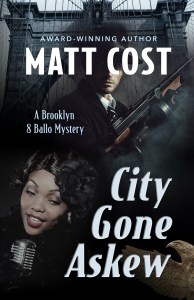
The second book in that series, City Gone Askew, just came out. This plot on the Eugenics Movement in the 1920s Brooklyn was inspired by my research into genome editing in contemporary times for the book Mouse Trap. Mainely Mayhem will pub in November and is centered around sketchy nominations, confirmations, and behavior by Justices of the Supreme Court. Hm. When looking for an idea, it is like picking apples in the fall, just reach out and pluck a ripe and juicy one and bit in. Write on!
Kait Carson Oh, this is almost too juicy a question. In grade school we were required to use our spelling terms in sentences to prove to the teacher we got the meaning and the spelling. The boy next to me (still a friend these sixty plus years later) had the word “clues.” His sentence, “I keep my clues in the clues closet.” The teacher didn’t laugh. Everyone else did. My inspiration is everywhere, and I have notebooks and computer files to back that statement up. My version of the clues closet.
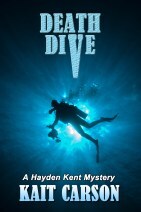 My diving stories come from real life experiences. Death By Blue Water had it’s inspiration in a scuba dive on a deep wreck named the Thunderbolt. A plastic bag floated on the current in the the windows of the wheelhouse. In that moment, it looked like a hand waving. At 80 feet. I plotted a rough outline on the ascent line. Death Dive also grew from my diving life. I was asked to review a video of a dive in which a diver disappeared in Belize’s Blue Hole. The body was never recovered. It’s hard to accept you’ve witnessed someone’s last moments. That turned into a story of attempted insurance fraud.
My diving stories come from real life experiences. Death By Blue Water had it’s inspiration in a scuba dive on a deep wreck named the Thunderbolt. A plastic bag floated on the current in the the windows of the wheelhouse. In that moment, it looked like a hand waving. At 80 feet. I plotted a rough outline on the ascent line. Death Dive also grew from my diving life. I was asked to review a video of a dive in which a diver disappeared in Belize’s Blue Hole. The body was never recovered. It’s hard to accept you’ve witnessed someone’s last moments. That turned into a story of attempted insurance fraud.
Rob Kelley Like my fellow Maine Crime Writers, I find ideas everywhere. Many of mine come from the news or from strange inspirations that hit me at odd times. My forthcoming novel Raven (High Frequency Press, 2025) has as a central plot device a particular piece of software from the early 1990’s that got its programmer very publicly fired from their job. My next book was very much ripped from the headlines today, a fact that has its own challenges as I’ve written about before, when the the headlines end up getting get ahead of your story!
And like most of my colleagues, I have an idea file that I’ve kept for years. Not a clippings file, per se, but the contemporary version of one, a cloud-based document filled with ideas and website links to news stories or other research sources. Also in that file are weird things that have happened to me or to friends and acquaintances that would make interesting stories (one I haven’t written yet, but absolutely will, will draw on the experience of having to clean out a long-estranged friend’s apartment after his suicide).
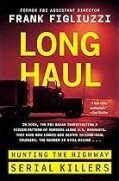 And some of the notes in that idea file are just odd phrases that strike me as kernels for a story, like the comment by Frank Figliuzzi in an interview in a recent Crime Reads about his new book on serial killers hiding as long haul truck drivers, Long Haul: Hunting the Highway Serial Killers. When one of the folks he interviewed in the book asked to be identified by an alias, he agreed, since “serial killers tend to be unpleasant.” That line is in my idea file. Not quite sure what that story is going to be about, but it’s dynamite!
And some of the notes in that idea file are just odd phrases that strike me as kernels for a story, like the comment by Frank Figliuzzi in an interview in a recent Crime Reads about his new book on serial killers hiding as long haul truck drivers, Long Haul: Hunting the Highway Serial Killers. When one of the folks he interviewed in the book asked to be identified by an alias, he agreed, since “serial killers tend to be unpleasant.” That line is in my idea file. Not quite sure what that story is going to be about, but it’s dynamite!
Maureen Milliken: At the risk of being repetitive, most writers are sponges. Ideas come from everywhere — an overheard snatch of conversation, something you spot while driving down the street, something you read in the newspaper. Feelings can lead to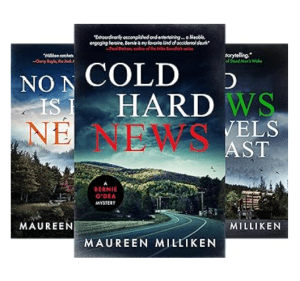 ideas, too. Frustration at an injustice, watching something play out that could’ve happened a different way — these have been foundations for all of my books in the Bernadette “Bernie” O’Dea mystery series.
ideas, too. Frustration at an injustice, watching something play out that could’ve happened a different way — these have been foundations for all of my books in the Bernadette “Bernie” O’Dea mystery series.
A writer’s mind, at least mine, is always saying “What if?” I don’t go through one day where something doesn’t give me an idea. Most days, I have many. My advice to aspiring writers? Be curious. Be observant. Look at the world around you in a different way. The ideas are everywhere, just waiting for you to pick them up.
John Clark: Story ideas are everywhere–pieces of overheard conversations, spotting unique visages on the street, pieces mined from obituaries, dreams, random thoughts, questions that pop into my mind, even things like the plethora of potholes in our street.
August 23, 2024
Weekend Update: August 24-25, 2024
 Next week at Maine Crime Writers there will be a group post on Monday and posts by Matt Cost (Tuesday), and Charlene D’Avanzo (Thursday).
Next week at Maine Crime Writers there will be a group post on Monday and posts by Matt Cost (Tuesday), and Charlene D’Avanzo (Thursday).
In the news department, here’s what’s happening with some of us who blog regularly at Maine Crime Writers:
Maureen Milliken and Kate Flora will have a table at the Maine Book Fest in Waterville 10 a.m.-4 p.m. Saturday, Aug. 24 and Sunday, Aug. 25, Head of Falls Park. The event features dozens of vendors at two locations (within walking distance) in downtown Waterville, author talks, workshops, food and more. Come on over and check it out!
Matt Cost will be signing books at H & H Mercantile in Searsport today (Saturday) from 11-2 p.m. Come dressed as a pirate and enter a chance to win a book! On Thursday, August 29th at 4 p.m., there will be a COST TALK at the Auburn Public Library. Cost recently did an interview on House of Mystery on NBC Radio. Listen HERE.
Curious about attending a mystery conference? The New England Crime Bake is small, friendly, and full of great panels and authors.

An invitation to readers of this blog: Do you have news relating to Maine, Crime, or Writing? We’d love to hear from you. Just comment below to share.
And a reminder: If your library, school, or organization is looking for a speaker, we are often available to talk about the writing process, research, where we get our ideas, and other mysteries of the business, along with the very popular “Making a Mystery” with audience participation, and “Casting Call: How We Staff Our Mysteries.” We also do programs on Zoom. Contact Kate Flora
August 22, 2024
True? Or Close Enough?
When I started to get deeply into the kinds of writing that forced me to learn things I didn’t already know, I thought close enough was good enough. That is, that accuracy wasn’t as important as making something believable. It was fiction, after all. Part of that, I think, was a native laziness, and part of it was worrying about truth getting in the way of a good story. We writers are all, at bottom, liars.
But I started to encounter situations where waving my hands and making something up wasn’t good enough. I could invent a street in Boston to put my bar on, but I couldn’t make  up a story why the lions reside in the Boston Public Library.
up a story why the lions reside in the Boston Public Library.
So I started to shed my lazy ways, as well as I could, and learned how to do research.
The key to using research in fiction, of course, is not to let it overwhelm the story. Just because you’ve done all that work doesn’t mean it belongs in the book. I recently read a 977 page behemoth of a novel about the contemporary South that was larded with research, only thinly disguised, to the detriment of the story’s momentum. Readers can and do skip parts of a book they don’t find compelling.
Starting research may mean going directly to Google, that most tempting seductress. It’s easy to access, returns many results (some of them even appropriate to your need), and yes, it’s always there. 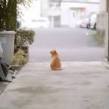 And if you Google my address in Oregon, where I haven’t lived for a dozen years, you will see see my cat Jasper, long since gone, sitting in the end of the driveway. Know the limits of generalized online research and act appropriately. It’s also helpful to learn to construct narrow and specific queries to get what you want efficiently. And move on.
And if you Google my address in Oregon, where I haven’t lived for a dozen years, you will see see my cat Jasper, long since gone, sitting in the end of the driveway. Know the limits of generalized online research and act appropriately. It’s also helpful to learn to construct narrow and specific queries to get what you want efficiently. And move on.
Further online research, more specific to your requirements, can be helpful, but there is always a tendency to dive down ratholes in search of that perfect factoid, which will eventually cut into your writing time.
Whenever possible, I go to primary and secondary sources for material. Primary sources are original information, as nearly as possible. In the case of the 977 page novel, the author based some of his research on actual slave documents. Secondary sources are usually based on the primary sources and often interpret the primary sources. Regardless whether these are physical or digital, these kinds of sources give more reliable and accurate information than random Internet sites. And there is a deep thrill in touching a document or object that is directly connected to the time, place, or people you’re writing about.
Far and away the most useful kind of research, though, comes from other people. Who do you know who has information that you want? Is it a police officer, a spy, a nurse, a librarian, and so on ad infinitum. In essence, how big is your Rolodex? 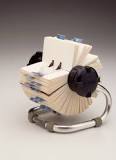 Michael Koryta’s book Last Words relies on an intimate knowledge of caving which, he admits, he didn’t know anything about before he started.
Michael Koryta’s book Last Words relies on an intimate knowledge of caving which, he admits, he didn’t know anything about before he started.
The best part of doing research with live sources is that most people love to talk about themselves, their work, their hobbies, their experiences. Even an introvert can get over the hump of discomfort by asking simple leading questions: what was it like to do what you did? How did it feel? And that is the point your story takes on true verisimilitude. Readers are intelligent. They can tell when you know what you’re talking about and when you’re faking it, even if what you’re telling them is believable. Readers love to learn something new, as long as they’re not drowned in it. Give them that and make it accurate and you’ve got a reader beguiled.
Lea Wait's Blog
- Lea Wait's profile
- 509 followers



